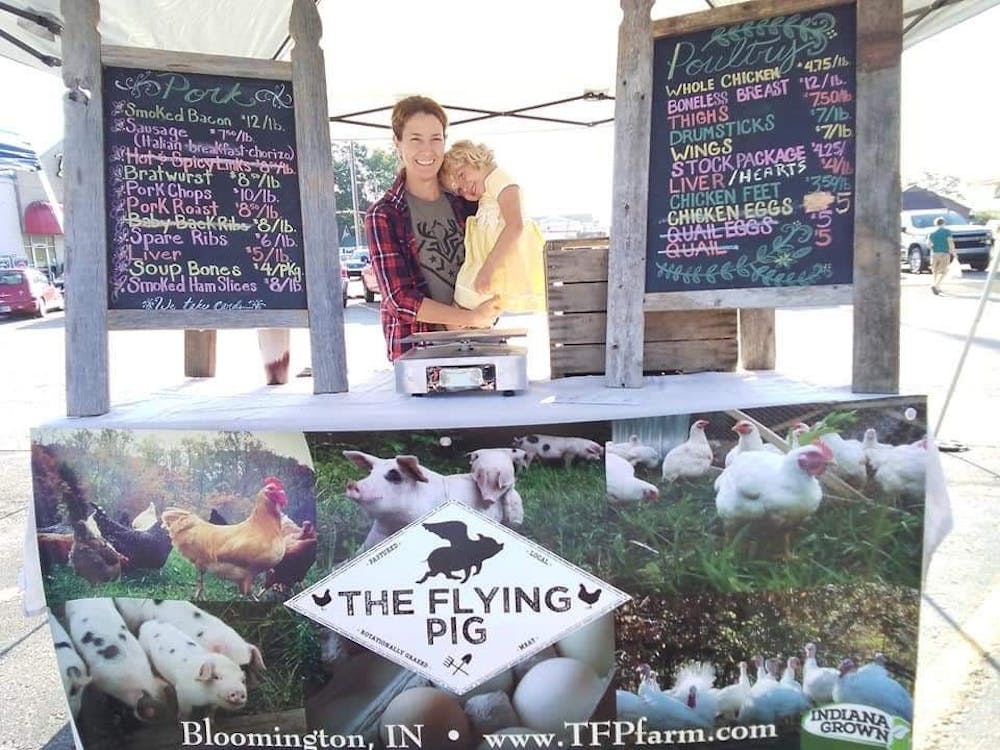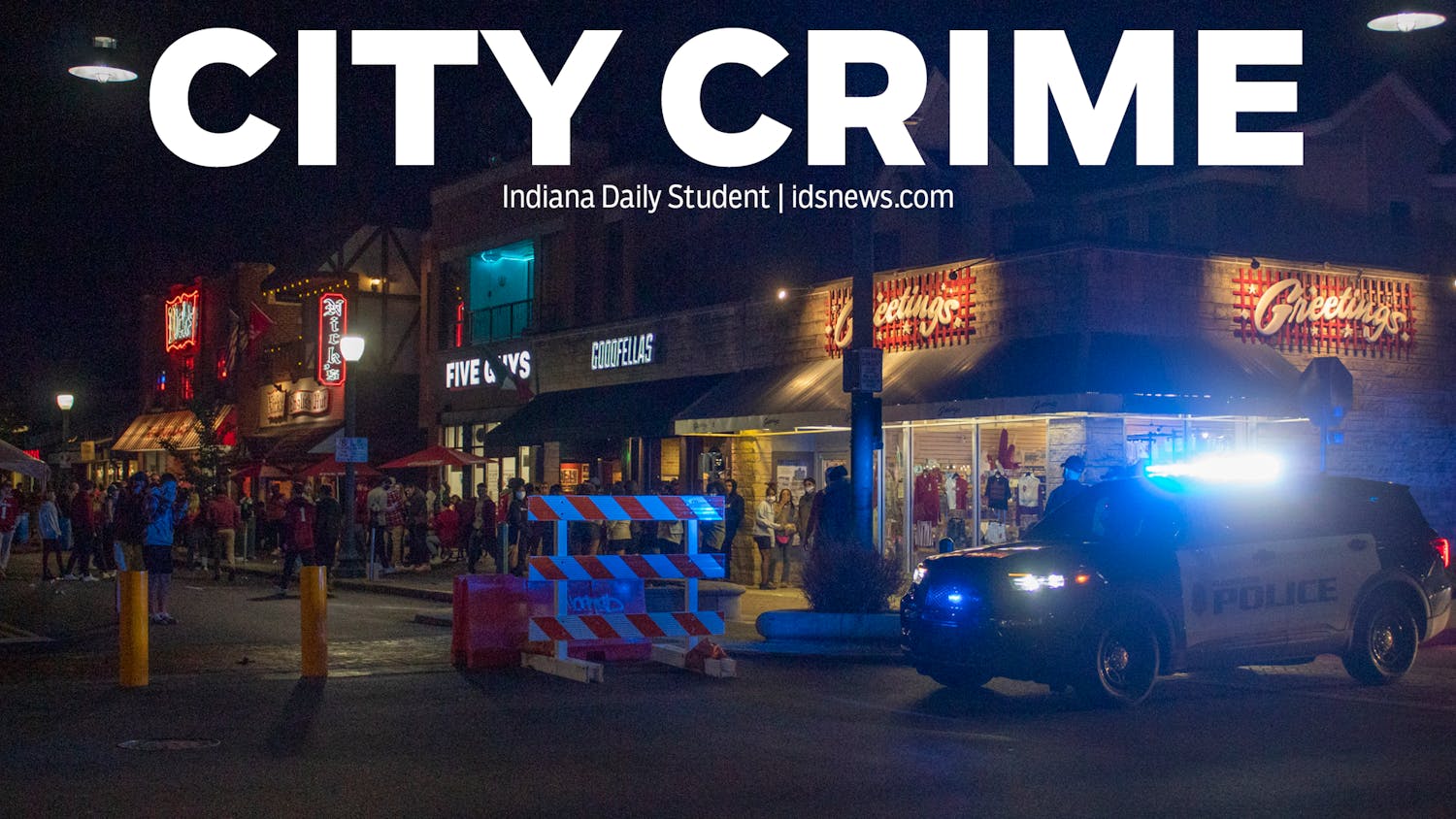Luke Rhodes, an owner of Rhodes Family Farm and a Bloomington Community Farmers’ Market vendor, has been running out of meat products since the pandemic started, and he’s not sure why.
“I just know that our meat sales have picked up, and we’ve been sold out at different times,” he said. “We just can’t keep enough product on hand.”
During the pandemic, farmers market meat vendors have found new ways to get their products out, including the online farmers market platforms. Business has been booming.
Jodee Ellett, a community engagement leader in IU’s Sustainable Food Systems Science project, said there is no sure reason for why consumers have taken to the local market during the pandemic, but potential reasons include meat shortages in grocery stores and people wanting to support their local markets.
Due to the pandemic, two Indiana processing plants closed last month -- an Indiana Packers Corp. plant in Delphi, Indiana, and a Tyson Foods Inc. plant in Logansport, Indiana. Both plants reopened about a week ago.
Ellett said larger processors are trying to catch up and are booked months in advance. Livestock can only be kept so long before they become too big to be slaughtered and processed, she said.
“If they don’t have a processor, they have to kill the animals in that really large-scale meat processing system,” she said.
Ellett said the meat shortage really began after consumers heard the news of the processing plant closings. The hoarder mentality started in the meat market.
It is difficult for small or midsize farmers and processors to keep up with this demand, but smaller processors are communicating with their customers and telling them to book as soon as possible so that they can keep up with demand, Ellett said.
Nicci Keaton, owner of the Flying Pig, another Bloomington Community Farmers’ Market vendor, said she noticed an increase in sales and a change in the types of customers she received.
“Now, we’re getting a lot of bulk customers, people kind of wanting to fill their freezers in case this happens again,” she said.
Teresa Birtles, owner of Heartland Family Farm in Spencer, Indiana, also noticed increased sales. She also sells online now using the Bloomington People's Cooperative Market.
She said she thinks the increase is because people have heard about meat shortages and also because people want their meat to be raised humanely.
“I think people are feeling food insecure, and I also think they want to know where their meat comes from,” she said.
Keaton said she also noticed new customers and thinks it may be because they want to support their local businesses.
“Their eyes have been opened to how fragile our food system is, or they just want to help support the local farmer,” she said.
Local vendors will have more outreach and support as a result of grocery store shortages, but Ellett said she hopes community members will continue to look to the local markets for their meat needs after the pandemic.
Local meat processors are increasing their production to keep up with demand to prevent local meat shortages, Ellett said. Just like large plants, however, small processing plants could have issues with COVID-19 too.
“Everybody’s still vulnerable to COVID-19 spreading through their business,” she said. “Anything like that can have a major trickle effect.”




